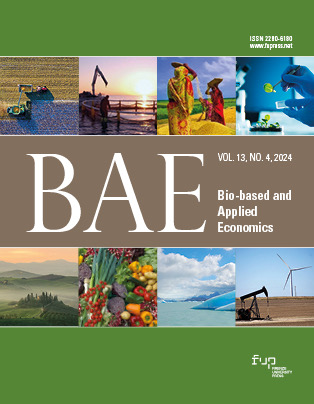Crop production, the pollinator deficit and land use management: UK farm level survey results
Published 2024-08-02
Keywords
- agri-environment policy,
- bees,
- wildflower strips,
- arable,
- top fruit
- Soft fruit ...More
How to Cite
Copyright (c) 2024 Iain Fraser, Michelle Fountain, John Holland

This work is licensed under a Creative Commons Attribution 4.0 International License.
Funding data
Abstract
In this paper, we address a gap in the literature concerning pollination management, the pollinator deficit, and conservation objectives. By employing a farm level survey of UK farmers, we examine farmers’ attitudes, understanding and management of pollinators. Based on descriptive statistics and regression analysis, we found significant variation in interest and understanding of the impact of pollinators on commercial crops meaning that many respondents did not consider they had a pollinator deficit in terms of crop quality, quantity, or financial impacts. At the same time, many farmers are willing to adopt environmentally beneficial land-use measures if suitable advice and financial incentives are offered. However, there is little evidence of coordination of actions between farms to support wild pollinators. These findings indicate a potential disconnect between a farmer’s understanding of the impact on agricultural output from a pollinator deficit and the agricultural benefits from the adoption of specific environmental measures.






